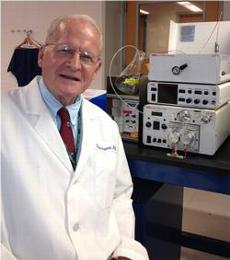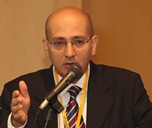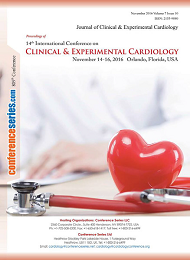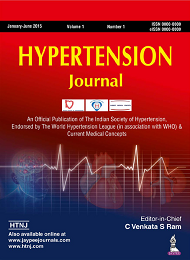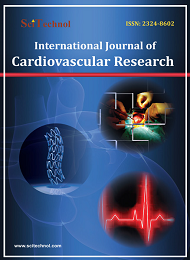Theme: Exploring the new horizons to cure Hypertension & Cardiac health
Hypertension 2022
Hypertension-2022 proudly announces the "10th International Conference on Hypertension & Healthcare" which will be held on June 13-14, 2022 at Madrid, Spain, after the success of “World Congress on Hypertension & Cardiovascular Diseases”.
Theme: “Exploring the new horizons to cure Hypertension & Cardiac health”.
Hypertension 2022 will be a platform for all the scientists, world-class professors & cardiologists, nephrologist, endocrinologist, psychiatrists, osteopathicians, bariatric, nurses, healthcare professionals to discuss an approach for hypertension & diagnosis, treatment & prevention of elevated blood pressure.
Hypertension is common among the human population & is often unregulated; however, uncontrolled increase in blood pressure leaves the individuals at risk to develop heart ailments. According to a report by the World Health Organization in 2018, 1.1 billion people in the world have a raised blood pressure & less than 1 in 5 have it under control. Treatment of cardiovascular disease often requires the administration of numerous medications for long periods of time to patients likely to be old & suffering from a range of co-morbid conditions. This Conference is dedicated to inciting discussions that promote innovations & fresh perspectives to the existing research related to cardiovascular diseases & hypertension.
Target Audience:
- Directors of Hypertension or related Programs or Associations
- Heads, Deans & Professors of Hypertension or Cardiology departments
- Scientists & Researchers organizers
- Doctors
- Medical Colleges
- Writers
- Healthcare professionals
- Founders & Employees of the related companies
- Clinical investigators
- Hospitals & Health Services
- Pharmaceutical companies
- Laboratory members
- Training institutions
Benefits of Attending our Webinar during Covid-19:
1. Learn from Top Professionals all over the world.
2. Be familiar with the latest trends & challenges within your sector.
3. Webinars are less costly in terms of a participation fee.
4. Share your research with top professors & get instant answers to your queries.
5. Participate in panel discussion session including live Q&A
Webinars are for anyone wishing to continue their medical education without travelling. They are interactive sessions that include case-based presentations, online assessments & live discussions with key opinion leaders providing useful tips for your daily clinical practice
Other Benefits of Joining Members:
- Get your abstract published with DOI
- Get Certified for your participation
- Reduced Costs / Affordability
- Knock Down Geographical Barriers
- Convenience from comfort of your own home or from work
- They are Archived: Ability to view events in the recording
- Great resource for learning new career skills
- Learn from the Pros
- Global exposure to your research
- Make new connections
- Significant time saving
- Increased engagement
- Wider Reach
- More Engaging
- Position yourself as the expert
Track 1: Hypertension
The disorder where the blood pressure in the arteries is persistently raised at a constant rate. This is also called as high blood pressure or high vital sign or blood vessel cardiovascular disease. This session categories of cardiovascular disease. The primary disease & secondary disease. Almost 90-95 % of cases are primary & the main cause behind it is the unhealthy lifestyle followed by excessive consumption of alcohol, salt, body weight etc. Remaining 5-10% of individuals suffer this due to thinning of kidney arteries, chronic kidney diseases, & endocrine disorder. Assessment of cardiovascular disease primarily includes Confirmation of hypertension, Risk factors, Fundamental causes, organ injury & Indications & contraindications of medication. Hypertension could be a major threat issue for cardiopathy & stroke.
Related Societies:
Europe: European Society of Hypertension, British Cardiovascular Society, Austrian Heart Foundation, British Heart Foundation, European Society of Cardiology, Irish Nurses Cardiovascular Association, American Cardiology Association, Italian Society of Cardiology, Moldavian Society of Cardiology, German Hypertension Society, Heart Rhythm Society, Association of Cardiologists of Bosnia & Herzegovina, British Association of Nursing in Cardiovascular Care, British Heart Failure Society, Spanish Society of Hypertension, Netherlands Society of Hypertension, Portuguese Society of Hypertension, Czech Society of Cardiology, Estonian Society of Cardiology, Finnish Cardiac Society, Georgian Society of Cardiology, Swedish Society of Hypertension, Bosnia and Herzegovina Society of Hypertension, British Association of Critical Care Nurses.
Asia-Pacific: Asian Pacific Society of Cardiology, World Health Organization, High Blood Pressure Research Council of Australia, Association of Paediatric Cardiology, Indonesian Society of Hypertension, Thai Hypertension Society, Malaysian Society of Hypertension, The Japanese Heart Failure Society, Singapore Heart Foundation, The Pan-African Society of Cardiology (PASCAR),
Middle-East: International Cardiac Pacing and Electrophysiology Society (ICPES), International Society of Hypertension, Russian Society of Cardiology, International Society for the Study of Hypertension in Pregnancy, Iranian Heart Foundation, Lebanese Society of Nephrology and Hypertension, Kuwait Medical Association
Track 2: Pulmonary Hypertension
Pulmonary Hypertension or PH is high blood pressure that affects the arteries in the lungs & the right side of the heart. In one form of pulmonary hypertension, tiny arteries in the lungs & capillaries become narrowed, blocked or destroyed. This makes it harder for blood to flow through the lungs & thus raises the pressure within lung walls. As the pressure builds, the heart's lower right chamber works harder to pump blood through the lungs, eventually causing the heart muscle fail. Some forms of pulmonary hypertension are serious conditions that become progressively worse & are sometimes fatal. This session mainly talks about the classification, signs, symptoms, & treatments of Pulmonary Hypertension.
Related Societies:
Europe: European Society of Hypertension, British Cardiovascular Society, Austrian Heart Foundation, British Heart Foundation, European Society of Cardiology, Irish Nurses Cardiovascular Association, American Cardiology Association, Italian Society of Cardiology, Moldavian Society of Cardiology, German Hypertension Society, Heart Rhythm Society, Association of Cardiologists of Bosnia & Herzegovina, British Association of Nursing in Cardiovascular Care, British Heart Failure Society, Spanish Society of Hypertension, Netherlands Society of Hypertension, Portuguese Society of Hypertension, Czech Society of Cardiology, Estonian Society of Cardiology, Finnish Cardiac Society, Georgian Society of Cardiology, Swedish Society of Hypertension, Bosnia and Herzegovina Society of Hypertension, British Association of Critical Care Nurses.
Asia-Pacific: Asian Pacific Society of Cardiology, World Health Organization, High Blood Pressure Research Council of Australia, Association of Paediatric Cardiology, Indonesian Society of Hypertension, Thai Hypertension Society, Malaysian Society of Hypertension, The Japanese Heart Failure Society, Singapore Heart Foundation, The Pan-African Society of Cardiology (PASCAR),
Middle-East: International Cardiac Pacing and Electrophysiology Society (ICPES), International Society of Hypertension, Russian Society of Cardiology, International Society for the Study of Hypertension in Pregnancy, Iranian Heart Foundation, Lebanese Society of Nephrology and Hypertension, Kuwait Medical Association
Track 3: Pediatric Hypertension
Pediatric hypertension inclines to hypertension & cardiovascular malady in grown-up life. Despite clear rules, there remains an absence of screening. Determination stays testing given the high rate of false-positive hypertension (BP) readings at a solitary visit; along these lines, different visits are required to affirm the analysis.
Related Societies:
Europe: European Society of Hypertension, British Cardiovascular Society, Austrian Heart Foundation, British Heart Foundation, European Society of Cardiology, Irish Nurses Cardiovascular Association, American Cardiology Association, Italian Society of Cardiology, Moldavian Society of Cardiology, German Hypertension Society, Heart Rhythm Society, Association of Cardiologists of Bosnia & Herzegovina, British Association of Nursing in Cardiovascular Care, British Heart Failure Society, Spanish Society of Hypertension, Netherlands Society of Hypertension, Portuguese Society of Hypertension, Czech Society of Cardiology, Estonian Society of Cardiology, Finnish Cardiac Society, Georgian Society of Cardiology, Swedish Society of Hypertension, Bosnia and Herzegovina Society of Hypertension, British Association of Critical Care Nurses.
Asia-Pacific: Asian Pacific Society of Cardiology, World Health Organization, High Blood Pressure Research Council of Australia, Association of Paediatric Cardiology, Indonesian Society of Hypertension, Thai Hypertension Society, Malaysian Society of Hypertension, The Japanese Heart Failure Society, Singapore Heart Foundation, The Pan-African Society of Cardiology (PASCAR),
Middle-East: International Cardiac Pacing and Electrophysiology Society (ICPES), International Society of Hypertension, Russian Society of Cardiology, International Society for the Study of Hypertension in Pregnancy, Iranian Heart Foundation, Lebanese Society of Nephrology and Hypertension, Kuwait Medical Association
Track 4: Gestational hypertension
Hypertension is that the development of recent cardiovascular disease in a very pregnant lady when twenty weeks gestation while not the presence of supermolecule within the excretory product or different signs of Pre-eclampsia. It is a brief identification for hypertensive pregnant ladies who don't meet criteria for pre-eclampsia or chronic cardiovascular disease. The identification is modified to, pre-eclampsia if a symptom or new signs of end-organ pathology develop & chronic cardiovascular disease if blood pressure elevation persists ≥weeks postnatally.
Related Societies:
Europe: European Society of Hypertension, British Cardiovascular Society, Austrian Heart Foundation, British Heart Foundation, European Society of Cardiology, Irish Nurses Cardiovascular Association, American Cardiology Association, Italian Society of Cardiology, Moldavian Society of Cardiology, German Hypertension Society, Heart Rhythm Society, Association of Cardiologists of Bosnia & Herzegovina, British Association of Nursing in Cardiovascular Care, British Heart Failure Society, Spanish Society of Hypertension, Netherlands Society of Hypertension, Portuguese Society of Hypertension, Czech Society of Cardiology, Estonian Society of Cardiology, Finnish Cardiac Society, Georgian Society of Cardiology, Swedish Society of Hypertension, Bosnia and Herzegovina Society of Hypertension, British Association of Critical Care Nurses.
Asia-Pacific: Asian Pacific Society of Cardiology, World Health Organization, High Blood Pressure Research Council of Australia, Association of Paediatric Cardiology, Indonesian Society of Hypertension, Thai Hypertension Society, Malaysian Society of Hypertension, The Japanese Heart Failure Society, Singapore Heart Foundation, The Pan-African Society of Cardiology (PASCAR),
Middle-East: International Cardiac Pacing and Electrophysiology Society (ICPES), International Society of Hypertension, Russian Society of Cardiology, International Society for the Study of Hypertension in Pregnancy, Iranian Heart Foundation, Lebanese Society of Nephrology and Hypertension, Kuwait Medical Association
Track 5: Hypertension & Cardiac Arrest
Cardiac arrest can be defined as a sudden stop in effective blood flow due to the failure of the heart. It is caused when the heart's electrical system malfunctions. The individual section in the session talks about all the related heart diseases. In cardiac arrest death results when the heart suddenly stops working properly. This may be caused by abnormal, or irregular, heart rhythms, cardiomyopathy (A thickened heart muscle), Heart medications, Electrical abnormalities, Recreational drug uses. Some symptoms of the arrest could be a sudden loss of responsiveness, abnormal breathing, fainting, fatigue, blackouts, dizziness, chest pain, shortness of breath, weakness, & vomiting. The most common cause for Cardiac arrest is the coronary heart disease. Coronary artery disease often results in coronary ischemia & ventricular fibrillation.
Related Societies:
Europe: European Society of Hypertension, British Cardiovascular Society, Austrian Heart Foundation, British Heart Foundation, European Society of Cardiology, Irish Nurses Cardiovascular Association, American Cardiology Association, Italian Society of Cardiology, Moldavian Society of Cardiology, German Hypertension Society, Heart Rhythm Society, Association of Cardiologists of Bosnia & Herzegovina, British Association of Nursing in Cardiovascular Care, British Heart Failure Society, Spanish Society of Hypertension, Netherlands Society of Hypertension, Portuguese Society of Hypertension, Czech Society of Cardiology, Estonian Society of Cardiology, Finnish Cardiac Society, Georgian Society of Cardiology, Swedish Society of Hypertension, Bosnia and Herzegovina Society of Hypertension, British Association of Critical Care Nurses.
Asia-Pacific: Asian Pacific Society of Cardiology, World Health Organization, High Blood Pressure Research Council of Australia, Association of Paediatric Cardiology, Indonesian Society of Hypertension, Thai Hypertension Society, Malaysian Society of Hypertension, The Japanese Heart Failure Society, Singapore Heart Foundation, The Pan-African Society of Cardiology (PASCAR),
Middle-East: International Cardiac Pacing and Electrophysiology Society (ICPES), International Society of Hypertension, Russian Society of Cardiology, International Society for the Study of Hypertension in Pregnancy, Iranian Heart Foundation, Lebanese Society of Nephrology and Hypertension, Kuwait Medical Association
Track 6: Hypertension & Obesity
Hypertension refers to the pressure that blood applies to the inner walls of the arteries. Obesity increases the chances of cardiovascular disease. The individual session in this focuses on obesity-related cardiovascular disease, its interaction with the outcomes of hypertension, risk factors, treatment & management of cardiovascular disease. Obesity-associated arterial hypertension is characterized by activation of the sympathetic system, activation of the renin-angiotensin system, & sodium retention, among different abnormalities Anti-hypertension medications ought to be started if hypertension is diagnosed. But, with weight-loss, a major fall in force per unit area could allow a decrease within the range of medicines taken or decrease the quantity of medication taken. Prevention would be better than any drug.
Related Societies:
Europe: European Society of Hypertension, British Cardiovascular Society, Austrian Heart Foundation, British Heart Foundation, European Society of Cardiology, Irish Nurses Cardiovascular Association, American Cardiology Association, Italian Society of Cardiology, Moldavian Society of Cardiology, German Hypertension Society, Heart Rhythm Society, Association of Cardiologists of Bosnia & Herzegovina, British Association of Nursing in Cardiovascular Care, British Heart Failure Society, Spanish Society of Hypertension, Netherlands Society of Hypertension, Portuguese Society of Hypertension, Czech Society of Cardiology, Estonian Society of Cardiology, Finnish Cardiac Society, Georgian Society of Cardiology, Swedish Society of Hypertension, Bosnia and Herzegovina Society of Hypertension, British Association of Critical Care Nurses.
Asia-Pacific: Asian Pacific Society of Cardiology, World Health Organization, High Blood Pressure Research Council of Australia, Association of Paediatric Cardiology, Indonesian Society of Hypertension, Thai Hypertension Society, Malaysian Society of Hypertension, The Japanese Heart Failure Society, Singapore Heart Foundation, The Pan-African Society of Cardiology (PASCAR),
Middle-East: International Cardiac Pacing and Electrophysiology Society (ICPES), International Society of Hypertension, Russian Society of Cardiology, International Society for the Study of Hypertension in Pregnancy, Iranian Heart Foundation, Lebanese Society of Nephrology and Hypertension, Kuwait Medical Association
Track 7: Hypertension – Stress & Stroke
Stressful situations can lead the blood to spike up temporarily but sometimes it may cause high blood pressure too. Research is still in progress to find out about it. According to some reports, the change in the blood pressure behavior can be due to various habits like overeating, drinking or poor sleeping. It’s possible that health conditions related to stress like anxiety, depression, & isolation from friends & family may lead to heart disease but not to a high blood pressure condition. Some hormonal changes may damage your arteries leading towards heart disease. According to the National Health Interview Survey, almost 75% of the general population experiences some stress every week. A stroke occurs when a blood vessel to the brain is either blocked by a clot or bursts, a part of the brain stops to get the required amount of blood & oxygen & hence it starts to die. Since the brain controls the entire body so it can threaten one’s ability to think, move & function. Hence Hypertension is the most prevalent & powerful modifiable risk factor for stroke.
Related Societies:
Europe: European Society of Hypertension, British Cardiovascular Society, Austrian Heart Foundation, British Heart Foundation, European Society of Cardiology, Irish Nurses Cardiovascular Association, American Cardiology Association, Italian Society of Cardiology, Moldavian Society of Cardiology, German Hypertension Society, Heart Rhythm Society, Association of Cardiologists of Bosnia & Herzegovina, British Association of Nursing in Cardiovascular Care, British Heart Failure Society, Spanish Society of Hypertension, Netherlands Society of Hypertension, Portuguese Society of Hypertension, Czech Society of Cardiology, Estonian Society of Cardiology, Finnish Cardiac Society, Georgian Society of Cardiology, Swedish Society of Hypertension, Bosnia and Herzegovina Society of Hypertension, British Association of Critical Care Nurses.
Asia-Pacific: Asian Pacific Society of Cardiology, World Health Organization, High Blood Pressure Research Council of Australia, Association of Paediatric Cardiology, Indonesian Society of Hypertension, Thai Hypertension Society, Malaysian Society of Hypertension, The Japanese Heart Failure Society, Singapore Heart Foundation, The Pan-African Society of Cardiology (PASCAR),
Middle-East: International Cardiac Pacing and Electrophysiology Society (ICPES), International Society of Hypertension, Russian Society of Cardiology, International Society for the Study of Hypertension in Pregnancy, Iranian Heart Foundation, Lebanese Society of Nephrology and Hypertension, Kuwait Medical Association
Track 8: Hypertension & Diabetes
Hypertension can lead to many complications of diabetes. Most people affected with Diabetes are more prone to suffer Hypertension. Diabetes damages the arteries & makes them targets for hardening & if it is not treated then it may also cause blood vessel damage, heart attack, & kidney failure too. In this section of the main, we discuss various types of Diabetes, risk factors that are involved in it, controlling hypertension in patients with Diabetes & Treatment.
Related Societies:
Europe: European Society of Hypertension, British Cardiovascular Society, Austrian Heart Foundation, British Heart Foundation, European Society of Cardiology, Irish Nurses Cardiovascular Association, American Cardiology Association, Italian Society of Cardiology, Moldavian Society of Cardiology, German Hypertension Society, Heart Rhythm Society, Association of Cardiologists of Bosnia & Herzegovina, British Association of Nursing in Cardiovascular Care, British Heart Failure Society, Spanish Society of Hypertension, Netherlands Society of Hypertension, Portuguese Society of Hypertension, Czech Society of Cardiology, Estonian Society of Cardiology, Finnish Cardiac Society, Georgian Society of Cardiology, Swedish Society of Hypertension, Bosnia and Herzegovina Society of Hypertension, British Association of Critical Care Nurses.
Asia-Pacific: Asian Pacific Society of Cardiology, World Health Organization, High Blood Pressure Research Council of Australia, Association of Paediatric Cardiology, Indonesian Society of Hypertension, Thai Hypertension Society, Malaysian Society of Hypertension, The Japanese Heart Failure Society, Singapore Heart Foundation, The Pan-African Society of Cardiology (PASCAR),
Middle-East: International Cardiac Pacing and Electrophysiology Society (ICPES), International Society of Hypertension, Russian Society of Cardiology, International Society for the Study of Hypertension in Pregnancy, Iranian Heart Foundation, Lebanese Society of Nephrology and Hypertension, Kuwait Medical Association
Track 9: Diet & Exercise for Hypertension
High blood pressure, which is also called hypertension increase the risk of developing many serious health problems including heart disease, stroke, & kidney disease. Evaluation & Treatment of High Blood Pressure recommendations have defined hypertension” as a BP of ≥140/90 mm Hg. The risk of cardiovascular disease in the patient with hypertension can be greatly reduced with effective antihypertensive therapy. Maintaining normal body weight, following a proper diet plan, exercising regularly, avoiding high-sodium content foods, limited alcohol consumption & pressure account.
Related Societies:
Europe: European Society of Hypertension, British Cardiovascular Society, Austrian Heart Foundation, British Heart Foundation, European Society of Cardiology, Irish Nurses Cardiovascular Association, American Cardiology Association, Italian Society of Cardiology, Moldavian Society of Cardiology, German Hypertension Society, Heart Rhythm Society, Association of Cardiologists of Bosnia & Herzegovina, British Association of Nursing in Cardiovascular Care, British Heart Failure Society, Spanish Society of Hypertension, Netherlands Society of Hypertension, Portuguese Society of Hypertension, Czech Society of Cardiology, Estonian Society of Cardiology, Finnish Cardiac Society, Georgian Society of Cardiology, Swedish Society of Hypertension, Bosnia and Herzegovina Society of Hypertension, British Association of Critical Care Nurses.
Asia-Pacific: Asian Pacific Society of Cardiology, World Health Organization, High Blood Pressure Research Council of Australia, Association of Paediatric Cardiology, Indonesian Society of Hypertension, Thai Hypertension Society, Malaysian Society of Hypertension, The Japanese Heart Failure Society, Singapore Heart Foundation, The Pan-African Society of Cardiology (PASCAR),
Middle-East: International Cardiac Pacing and Electrophysiology Society (ICPES), International Society of Hypertension, Russian Society of Cardiology, International Society for the Study of Hypertension in Pregnancy, Iranian Heart Foundation, Lebanese Society of Nephrology and Hypertension, Kuwait Medical Association
Track 10: Hypertension Treatments
High blood pressure can be cured. The disease can be controlled by following a proper & healthy lifestyle. As per recommended by various doctors by having a healthy lifestyle, eating less salt in your regular diet, quitting smoking, consuming the limited amount of alcohol can help in curing the disease. In addition to this regular exercise will also help in controlling the disease. Drug treatments are available too for Hypertension. Various drugs are available in the market that allows the individual person to do that in which few are-Thiazide diuretics, Beta blockers, Angiotensin II receptor blockers (ARBs), Calcium channel blockers, Central-acting agents, Alpha blockers, Aldosterone antagonists.
Related Societies:
Europe: European Society of Hypertension, British Cardiovascular Society, Austrian Heart Foundation, British Heart Foundation, European Society of Cardiology, Irish Nurses Cardiovascular Association, American Cardiology Association, Italian Society of Cardiology, Moldavian Society of Cardiology, German Hypertension Society, Heart Rhythm Society, Association of Cardiologists of Bosnia & Herzegovina, British Association of Nursing in Cardiovascular Care, British Heart Failure Society, Spanish Society of Hypertension, Netherlands Society of Hypertension, Portuguese Society of Hypertension, Czech Society of Cardiology, Estonian Society of Cardiology, Finnish Cardiac Society, Georgian Society of Cardiology, Swedish Society of Hypertension, Bosnia and Herzegovina Society of Hypertension, British Association of Critical Care Nurses.
Asia-Pacific: Asian Pacific Society of Cardiology, World Health Organization, High Blood Pressure Research Council of Australia, Association of Paediatric Cardiology, Indonesian Society of Hypertension, Thai Hypertension Society, Malaysian Society of Hypertension, The Japanese Heart Failure Society, Singapore Heart Foundation, The Pan-African Society of Cardiology (PASCAR),
Middle-East: International Cardiac Pacing and Electrophysiology Society (ICPES), International Society of Hypertension, Russian Society of Cardiology, International Society for the Study of Hypertension in Pregnancy, Iranian Heart Foundation, Lebanese Society of Nephrology and Hypertension, Kuwait Medical Association
Track 11: Advanced Treatments Approaches
Treating high blood pressure can take a multi-pronged approach including diet changes, medication, & exercise. Hypertension, or high blood pressure, is dangerous because it can lead to strokes, heart attacks, heart failure, or kidney disease. The goal of hypertension treatment is to lower high blood pressure & protect important organs, like the brain, heart & kidneys from damage. Treatment for hypertension has been associated with reductions in stroke, heart, & heart failure according to research. Because hypertension rarely causes specific symptoms, it is not identified until an individual’s blood pressure is measured by a physician or it causes a catastrophic complication such as stroke or heart attack. Accurate diagnosis by blood pressure measurement is essential.
Related Societies:
Europe: European Society of Hypertension, British Cardiovascular Society, Austrian Heart Foundation, British Heart Foundation, European Society of Cardiology, Irish Nurses Cardiovascular Association, American Cardiology Association, Italian Society of Cardiology, Moldavian Society of Cardiology, German Hypertension Society, Heart Rhythm Society, Association of Cardiologists of Bosnia & Herzegovina, British Association of Nursing in Cardiovascular Care, British Heart Failure Society, Spanish Society of Hypertension, Netherlands Society of Hypertension, Portuguese Society of Hypertension, Czech Society of Cardiology, Estonian Society of Cardiology, Finnish Cardiac Society, Georgian Society of Cardiology, Swedish Society of Hypertension, Bosnia and Herzegovina Society of Hypertension, British Association of Critical Care Nurses.
Asia-Pacific: Asian Pacific Society of Cardiology, World Health Organization, High Blood Pressure Research Council of Australia, Association of Paediatric Cardiology, Indonesian Society of Hypertension, Thai Hypertension Society, Malaysian Society of Hypertension, The Japanese Heart Failure Society, Singapore Heart Foundation, The Pan-African Society of Cardiology (PASCAR),
Middle-East: International Cardiac Pacing and Electrophysiology Society (ICPES), International Society of Hypertension, Russian Society of Cardiology, International Society for the Study of Hypertension in Pregnancy, Iranian Heart Foundation, Lebanese Society of Nephrology and Hypertension, Kuwait Medical Association
Track 12: Clinical case report
High blood pressure, also known as hypertension, affects millions, even children & teens. It is a common condition that catches up with most people who live into older age. The exact cause of hypertension is unknown, but there are several factors & conditions that may contribute to its occurrence. In the USA about 82% of the total population is suffering from Hypertension.
Related Societies:
Europe: European Society of Hypertension, British Cardiovascular Society, Austrian Heart Foundation, British Heart Foundation, European Society of Cardiology, Irish Nurses Cardiovascular Association, American Cardiology Association, Italian Society of Cardiology, Moldavian Society of Cardiology, German Hypertension Society, Heart Rhythm Society, Association of Cardiologists of Bosnia & Herzegovina, British Association of Nursing in Cardiovascular Care, British Heart Failure Society, Spanish Society of Hypertension, Netherlands Society of Hypertension, Portuguese Society of Hypertension, Czech Society of Cardiology, Estonian Society of Cardiology, Finnish Cardiac Society, Georgian Society of Cardiology, Swedish Society of Hypertension, Bosnia and Herzegovina Society of Hypertension, British Association of Critical Care Nurses.
Asia-Pacific: Asian Pacific Society of Cardiology, World Health Organization, High Blood Pressure Research Council of Australia, Association of Paediatric Cardiology, Indonesian Society of Hypertension, Thai Hypertension Society, Malaysian Society of Hypertension, The Japanese Heart Failure Society, Singapore Heart Foundation, The Pan-African Society of Cardiology (PASCAR),
Middle-East: International Cardiac Pacing and Electrophysiology Society (ICPES), International Society of Hypertension, Russian Society of Cardiology, International Society for the Study of Hypertension in Pregnancy, Iranian Heart Foundation, Lebanese Society of Nephrology and Hypertension, Kuwait Medical Association
Track 13: Causative Factors & Risk Assessment
High blood pressure has several causative factors like age, race, case history & obesity, not being physically active, overwhelming tobacco, an excessive amount of salt (sodium) in diet, deficient Vitamin D in the diet, drinking an excessive amount of alcohol, stress & bound chronic conditions. Though high pressure is commonest in adults, youngsters are also in danger, too. For a few youngsters, high pressure is caused by issues with the kidneys or heart except for a growing variety of youngsters, poor fashion habits, like an unhealthy diet, fleshiness, physiological condition & lack of exercise contributes to high pressure.
Related Societies:
Europe: European Society of Hypertension, British Cardiovascular Society, Austrian Heart Foundation, British Heart Foundation, European Society of Cardiology, Irish Nurses Cardiovascular Association, American Cardiology Association, Italian Society of Cardiology, Moldavian Society of Cardiology, German Hypertension Society, Heart Rhythm Society, Association of Cardiologists of Bosnia & Herzegovina, British Association of Nursing in Cardiovascular Care, British Heart Failure Society, Spanish Society of Hypertension, Netherlands Society of Hypertension, Portuguese Society of Hypertension, Czech Society of Cardiology, Estonian Society of Cardiology, Finnish Cardiac Society, Georgian Society of Cardiology, Swedish Society of Hypertension, Bosnia and Herzegovina Society of Hypertension, British Association of Critical Care Nurses.
Asia-Pacific: Asian Pacific Society of Cardiology, World Health Organization, High Blood Pressure Research Council of Australia, Association of Paediatric Cardiology, Indonesian Society of Hypertension, Thai Hypertension Society, Malaysian Society of Hypertension, The Japanese Heart Failure Society, Singapore Heart Foundation, The Pan-African Society of Cardiology (PASCAR),
Middle-East: International Cardiac Pacing and Electrophysiology Society (ICPES), International Society of Hypertension, Russian Society of Cardiology, International Society for the Study of Hypertension in Pregnancy, Iranian Heart Foundation, Lebanese Society of Nephrology and Hypertension, Kuwait Medical Association
Track 14: Healthcare and Global Economics
Health economics is related to value, behavior efficiency & effectiveness in the production and consumption of both health and health care. Health economists study the functioning of health care systems & health-affecting behaviors such as drinking, smoking etc. Health care policy is identified as the plans, actions & decisions that are taken to achieve specific health care goals within a society. There are many sub-categories under health policies like National Health policy, personal health care policy, Nursing Healthcare policy, pharmaceutical policy, and public health policy such as vaccination policy, tobacco control policy and breastfeeding promotion policy.
Related Societies:
Europe: European Society of Hypertension, British Cardiovascular Society, Austrian Heart Foundation, British Heart Foundation, European Society of Cardiology, Irish Nurses Cardiovascular Association, American Cardiology Association, Italian Society of Cardiology, Moldavian Society of Cardiology, German Hypertension Society, Heart Rhythm Society, Association of Cardiologists of Bosnia & Herzegovina, British Association of Nursing in Cardiovascular Care, British Heart Failure Society, Spanish Society of Hypertension, Netherlands Society of Hypertension, Portuguese Society of Hypertension, Czech Society of Cardiology, Estonian Society of Cardiology, Finnish Cardiac Society, Georgian Society of Cardiology, Swedish Society of Hypertension, Bosnia and Herzegovina Society of Hypertension, British Association of Critical Care Nurses.
Asia-Pacific: Asian Pacific Society of Cardiology, World Health Organization, High Blood Pressure Research Council of Australia, Association of Paediatric Cardiology, Indonesian Society of Hypertension, Thai Hypertension Society, Malaysian Society of Hypertension, The Japanese Heart Failure Society, Singapore Heart Foundation, The Pan-African Society of Cardiology (PASCAR),
Middle-East: International Cardiac Pacing and Electrophysiology Society (ICPES), International Society of Hypertension, Russian Society of Cardiology, International Society for the Study of Hypertension in Pregnancy, Iranian Heart Foundation, Lebanese Society of Nephrology and Hypertension, Kuwait Medical Association
Track 15: Healthcare and Chronic Diseases
A chronic condition is a human health condition or disease that is persistent or otherwise long-lasting in its effects or a disease that comes with time. The term chronic is usually applied when the course of the disease lasts for more than three months. Common chronic diseases include arthritis, asthma, cancer, COPD, diabetes and viral diseases such as hepatitis C and HIV/AIDS. Chronic diseases constitute a major cause of mortality. Chronic care management encompasses the oversight and education activities conducted by health care professionals to help patients with chronic disease and health conditions such as diabetes, high blood pressure, lupus, multiple sclerosis and sleep apnea learn to understand their condition and live successfully with it. This term is equivalent to disease management (health) for chronic conditions. The work involves motivating patients to persist in necessary therapies and interventions and helping them to achieve an on-going, reasonable quality of life.
Related Societies:
Europe: European Society of Hypertension, British Cardiovascular Society, Austrian Heart Foundation, British Heart Foundation, European Society of Cardiology, Irish Nurses Cardiovascular Association, American Cardiology Association, Italian Society of Cardiology, Moldavian Society of Cardiology, German Hypertension Society, Heart Rhythm Society, Association of Cardiologists of Bosnia & Herzegovina, British Association of Nursing in Cardiovascular Care, British Heart Failure Society, Spanish Society of Hypertension, Netherlands Society of Hypertension, Portuguese Society of Hypertension, Czech Society of Cardiology, Estonian Society of Cardiology, Finnish Cardiac Society, Georgian Society of Cardiology, Swedish Society of Hypertension, Bosnia and Herzegovina Society of Hypertension, British Association of Critical Care Nurses.
Asia-Pacific: Asian Pacific Society of Cardiology, World Health Organization, High Blood Pressure Research Council of Australia, Association of Paediatric Cardiology, Indonesian Society of Hypertension, Thai Hypertension Society, Malaysian Society of Hypertension, The Japanese Heart Failure Society, Singapore Heart Foundation, The Pan-African Society of Cardiology (PASCAR),
Middle-East: International Cardiac Pacing and Electrophysiology Society (ICPES), International Society of Hypertension, Russian Society of Cardiology, International Society for the Study of Hypertension in Pregnancy, Iranian Heart Foundation, Lebanese Society of Nephrology and Hypertension, Kuwait Medical Association
Track 16: Healthcare & Technologies
The HIT is the application of knowledge and skills in the form of devices, medicines, vaccines, Healthcare and technology can be termed as the health information technology (
Related Societies:
Europe: European Society of Hypertension, British Cardiovascular Society, Austrian Heart Foundation, British Heart Foundation, European Society of Cardiology, Irish Nurses Cardiovascular Association, American Cardiology Association, Italian Society of Cardiology, Moldavian Society of Cardiology, German Hypertension Society, Heart Rhythm Society, Association of Cardiologists of Bosnia & Herzegovina, British Association of Nursing in Cardiovascular Care, British Heart Failure Society, Spanish Society of Hypertension, Netherlands Society of Hypertension, Portuguese Society of Hypertension, Czech Society of Cardiology, Estonian Society of Cardiology, Finnish Cardiac Society, Georgian Society of Cardiology, Swedish Society of Hypertension, Bosnia and Herzegovina Society of Hypertension, British Association of Critical Care Nurses.
Asia-Pacific: Asian Pacific Society of Cardiology, World Health Organization, High Blood Pressure Research Council of Australia, Association of Paediatric Cardiology, Indonesian Society of Hypertension, Thai Hypertension Society, Malaysian Society of Hypertension, The Japanese Heart Failure Society, Singapore Heart Foundation, The Pan-African Society of Cardiology (PASCAR),
Middle-East: International Cardiac Pacing and Electrophysiology Society (ICPES), International Society of Hypertension, Russian Society of Cardiology, International Society for the Study of Hypertension in Pregnancy, Iranian Heart Foundation, Lebanese Society of Nephrology and Hypertension, Kuwait Medical Association
According to Statistics MRC, the Global Stroke Diagnostics & Therapeutics market is accounted for $23,849.39 Million in 2017 & is expected to reach $49,698.68 Million by 2026 growing at a CAGR of 8.5% during the forecast period. Factors such as technological advancement, a growing aging population, & people suffering from diabetes, Hypertension are favoring the market. On the other h&, increasing health expenditure, hypertension & increasing tobacco users are also fueling the market.
Hypertension is a chronic medical condition in which the arterial blood pressure is elevated to an undesired level. Hypertension is a lifelong disease, which means that a patient may require to take medications every day for the rest of his/her life. Thus, the dem& for anti-hypertensive drugs is sustainable & will increase with an increase in the number of target patients. Anti-hypertensive drugs were the second largest therapy area in 2011 with the global sales value of more than USD 40 billion, according to the World Preview 2018 report by Evaluate Pharma.
Some of the key players contributing to the global anti-hypertensive drugs market include Novartis AG, Pfizer, Inc., Johnson & Johnson Ltd, Sanofi S.A., Lupin Limited, Ranbaxy Laboratories Limited, Merck & Co., Inc., Astra Zeneca Plc, & Takeda Pharmaceutical Company Limited.
This research report analyzes this market depending on its market segments, major geographies, & current market trends. Geographies analyzed under this research report include
• North America
• Asia Pacific
• Europe
• Rest of the World
• America
Related Societies & Association:
Europe:
- European Society of Hypertension
- British Cardiovascular Society
- Austrian Heart Foundation
- British Heart Foundation
- European Society of Cardiology
- Irish Nurses Cardiovascular Association
- American Cardiology Association
- Italian Society of Cardiology
- Moldavian Society of Cardiology
- German Hypertension Society
- Heart Rhythm Society
- Association of Cardiologists of Bosnia & Herzegovina
- British Association of Nursing in Cardiovascular Care
- British Heart Failure Society
- Spanish Society of Hypertension
- Netherlands Society of Hypertension
- Portuguese Society of Hypertension
- Czech Society of Cardiology
- Estonian Society of Cardiology
- Finnish Cardiac Society
- Georgian Society of Cardiology
- Swedish Society of Hypertension
- Bosnia and Herzegovina Society of Hypertension
- British Association of Critical Care Nurses
America:
- American Stroke Association
- American Society of Hypertension
- American College of Cardiology
- Canadian Association of Interventional Cardiology (CAIC)
- Latin American Society of Hypertension
- Heart & Stroke Foundation of Barbados
- Heart and Stroke Foundation of Canada
- Latin American Society of Hypertension
- Brazilian Society of Hypertension
- American Heart Association
- Heart Failure Society of America
- Congenital Cardiac Anesthesia Society
Asia-Pacific:
- Asian Pacific Society of Cardiology
- World Health Organization
- High Blood Pressure Research Council of Australia
- Association of Paediatric Cardiology
- Indonesian Society of Hypertension
- Thai Hypertension Society
- Malaysian Society of Hypertension
- The Japanese Heart Failure Society
- Singapore Heart Foundation
- The Pan-African Society of Cardiology (PASCAR)
Middle-East:
- International Cardiac Pacing and Electrophysiology Society (ICPES)
- International Society of Hypertension
- Russian Society of Cardiology
- International Society for the Study of Hypertension in Pregnancy
- Iranian Heart Foundation
- Lebanese Society of Nephrology and Hypertension
- Kuwait Medical Association
Conference Highlights
- Hypertension
- Pulmonary Hypertension
- Pediatric hypertension
- Gestational Hypertension
- Hypertension and Cardiac Arrest
- Hypertension – Stress and Stroke
- Hypertension and Obesity
- Hypertension and Diabetes
- Diet and Exercise for Hypertension
- Hypertension Treatments
- Advanced Treatments Approaches
- Clinical Case Reports
- Causative Factors and Risk Assessment
- Multiple Risk Management
To share your views and research, please click here to register for the Conference.
To Collaborate Scientific Professionals around the World
| Conference Date | June 13-14, 2022 | ||
| Sponsors & Exhibitors |
|
||
| Speaker Opportunity Closed | |||
| Poster Opportunity Closed | Click Here to View | ||
Useful Links
Special Issues
All accepted abstracts will be published in respective Our International Journals.
- Journal of Clinical & Experimental Cardiology
- Journal of Hypertension: Open Access
- Journal of Cardiovascular Diseases & Diagnosis
Abstracts will be provided with Digital Object Identifier by




